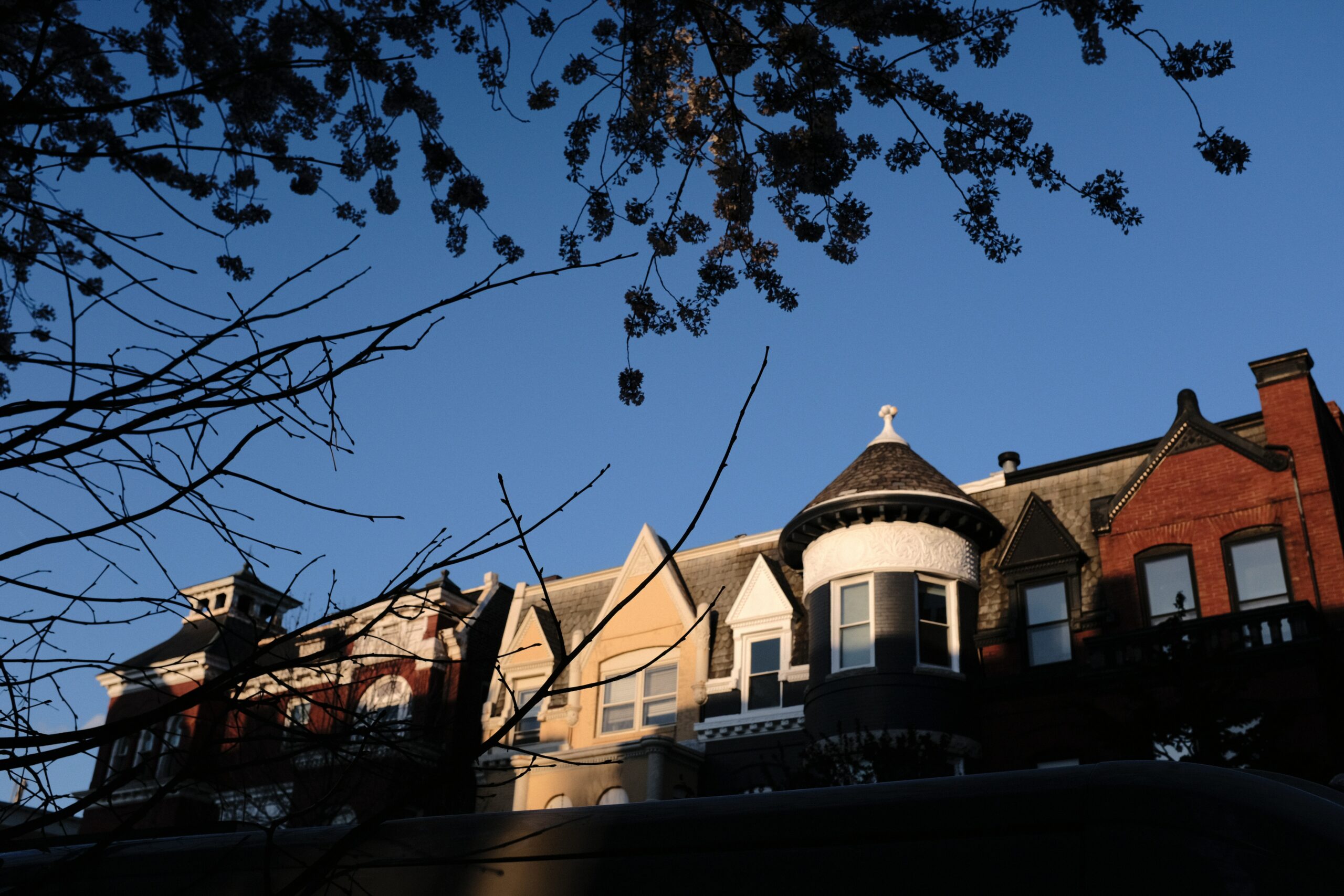Press Release: Student Debt and Homeownership Barriers in Washington, D.C.

New York, NY — October 26, 2023 — A new collaborative report from the Jain Family Institute (JFI) and the Economic Policy Institute (EPI) sheds light on the intertwined challenges of student loan debt and homeownership faced by young debtholders in Washington, D.C., highlighting racial inequalities and examining potential policy measures to mitigate these challenges.
Analyzing data from 2009 to 2022, the authors of the report, JFI Data Science Research Associate Eduard Nilaj and EPI Economist Kyle K. Moore, unveil the following key findings:
- Young borrowers in D.C. have the highest student loan debts in the U.S., facing high debt-to-income ratios that impact loan repayment, with racial disparities exacerbating these financial challenges in Black-majority areas.
- The decline in homeownership rates among young borrowers in D.C., from 22.1 percent in 2010 to 13.7 percent in 2022, is closely linked to the surge in student loan debt. A $10,000 increase in student debt is associated with an 8 percent decrease in homeownership likelihood.
- Homeownership in D.C. is hindered by racial and educational disparities, with lower educational attainment and higher mortgage denial rates in majority-Black areas. Emerging trends also show a risk of gentrification and displacement in historically Black neighborhoods.
- Transformative federal policies are needed to address systemic issues driving racial inequity in homeownership and escalating student debt burdens.
- Suggested strategies include implementing asset-building programs, boosting housing supply, and targeted student debt cancellation to enhance homeownership accessibility and alleviate racial disparities.
“Our findings underline the urgency to view and confront the student debt crisis as an issue that exacerbates existing economic and racial inequalities, further eroding the already limited opportunities for homeownership in D.C.,” said lead report author Eduard Nilaj. “If policymakers are serious about using student debt forgiveness as a lever to increase homeownership, it’s crucial they set eligibility requirements that unequivocally include those who are most adversely affected.”
“What we’ve found in this work highlights just how much more difficult student debt makes the process of creating wealth through homeownership, for all young borrowers but particularly Black borrowers, for whom homeownership is already less accessible,” added report contributor Kyle K. Moore. “In a place like D.C., where racial economic inequality is pervasive and growing, it’s imperative that we recognize how serious of a burden student debt is on families trying to build wealth, and to take steps to alleviate that burden if we believe that closing the racial wealth gap is an important policy goal.”
This is the thirteenth report released through JFI’s Millennial Student Debt (MSD) research project. The project’s previous reports cover topics such as student debt after the 2008 recession, regional disparities in student debt, deceptive practices at top-ranked institutions, and the crisis of non-repayment.